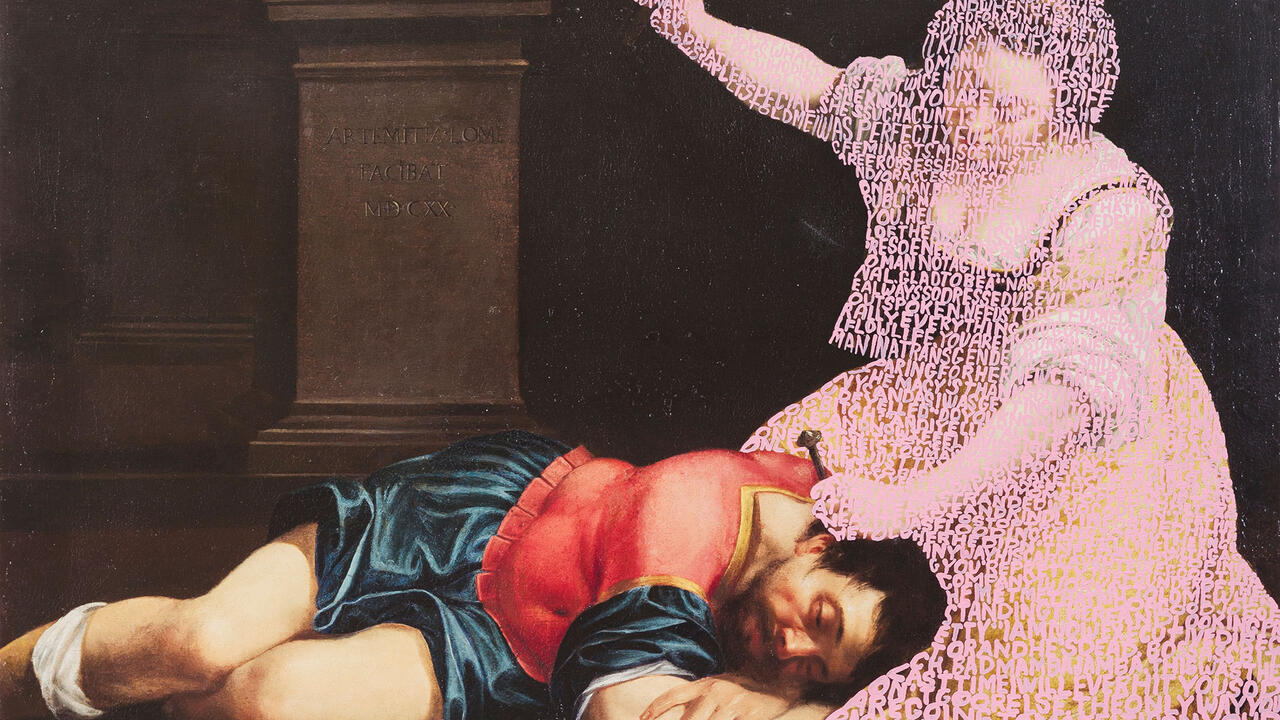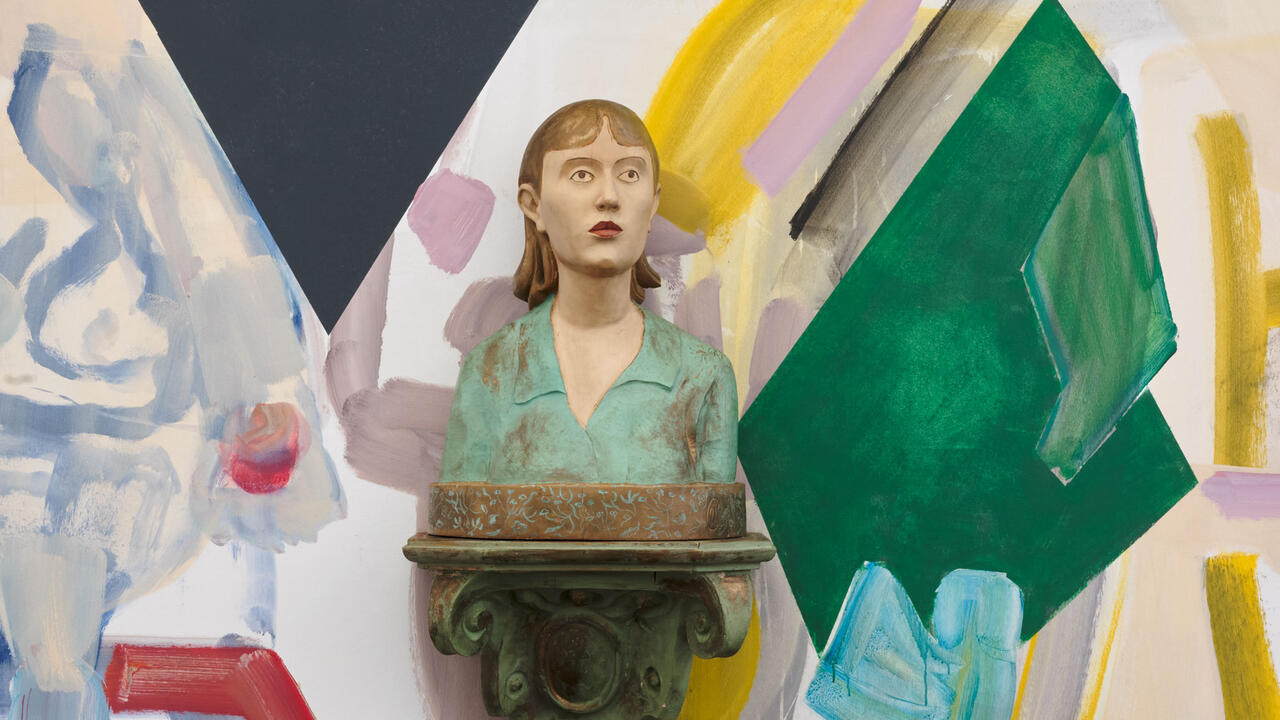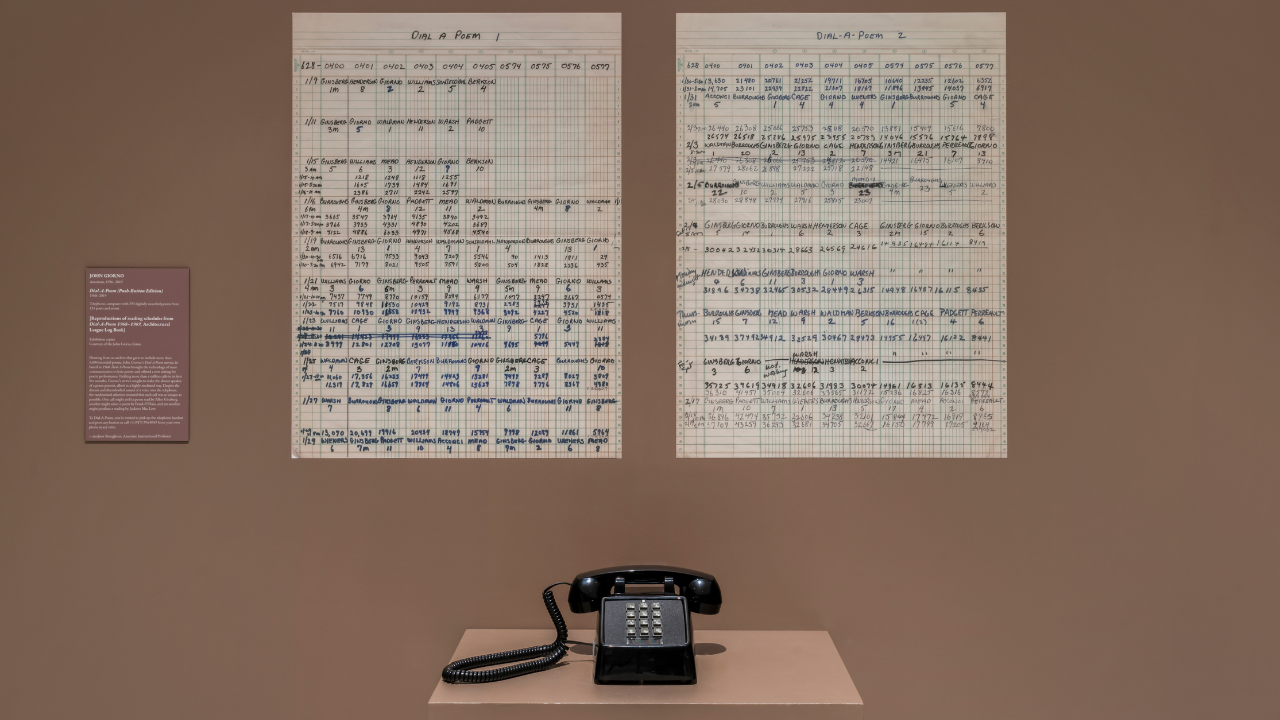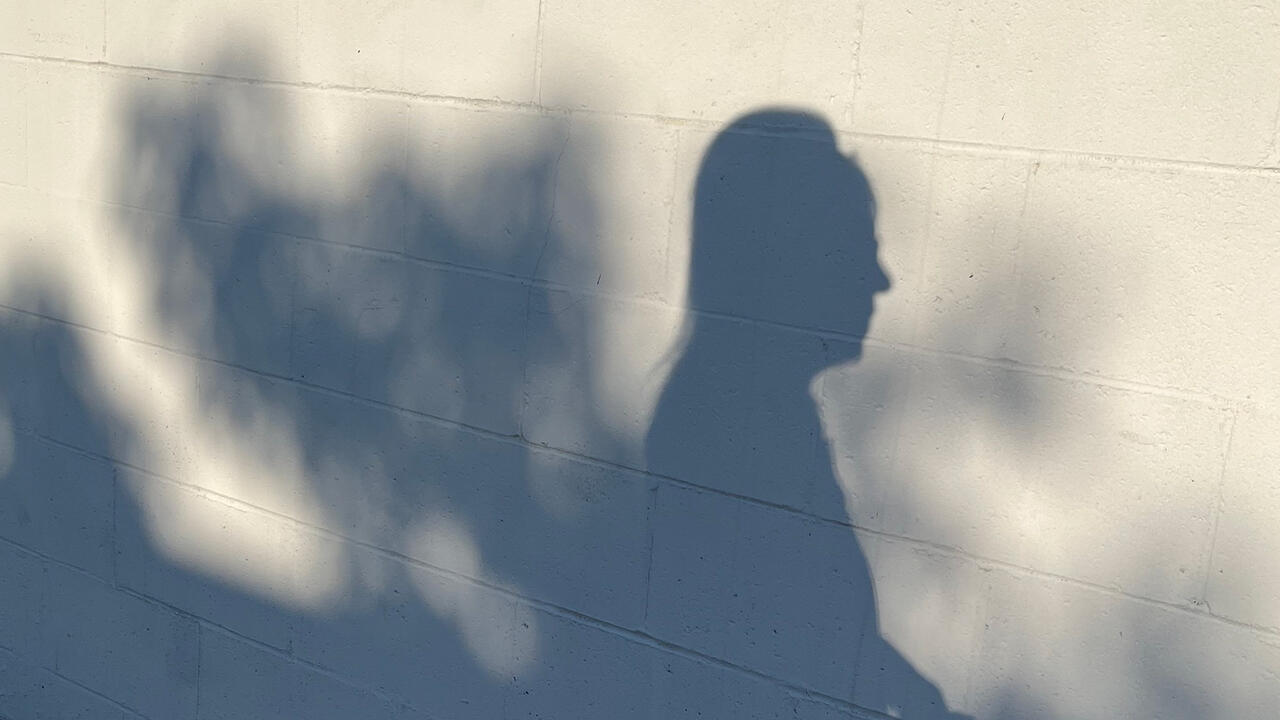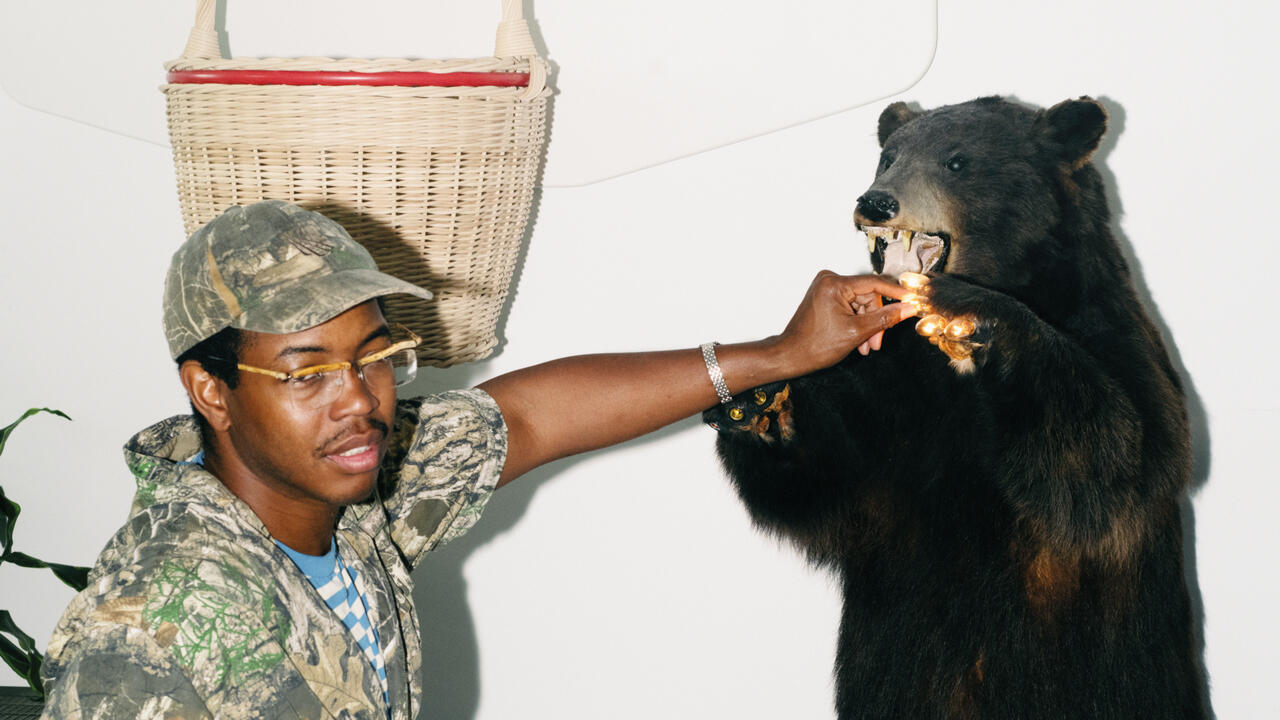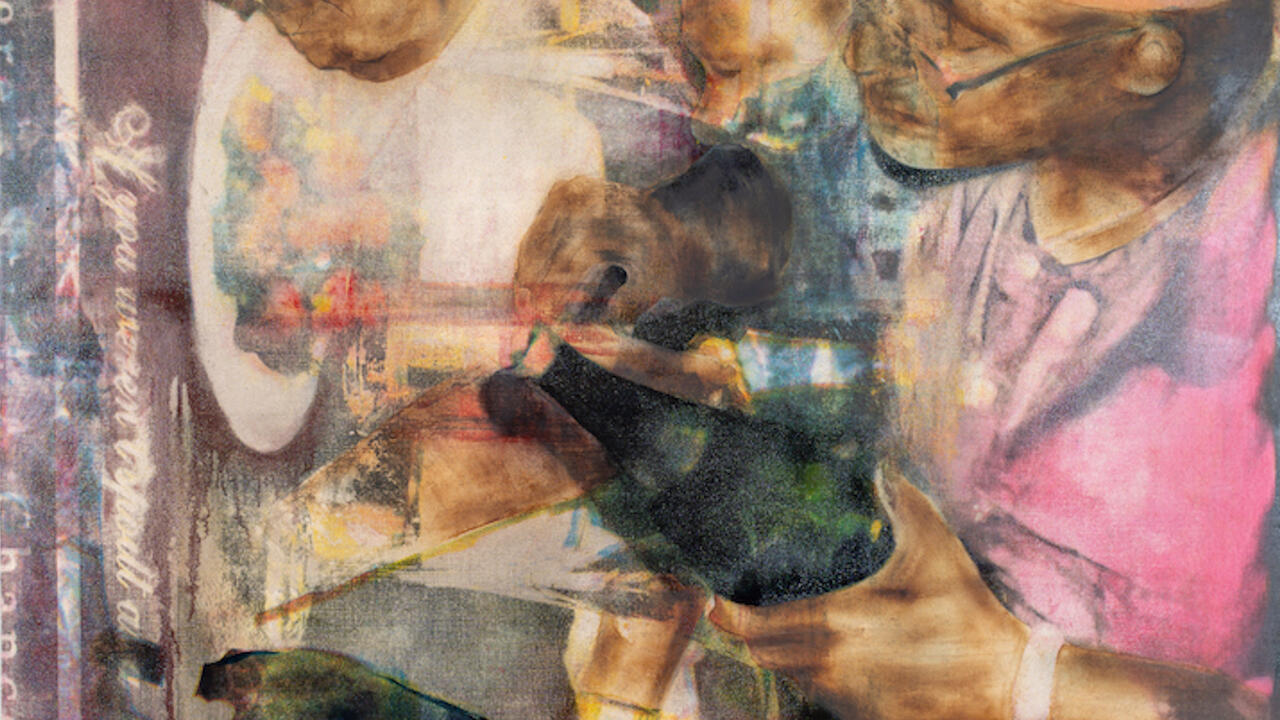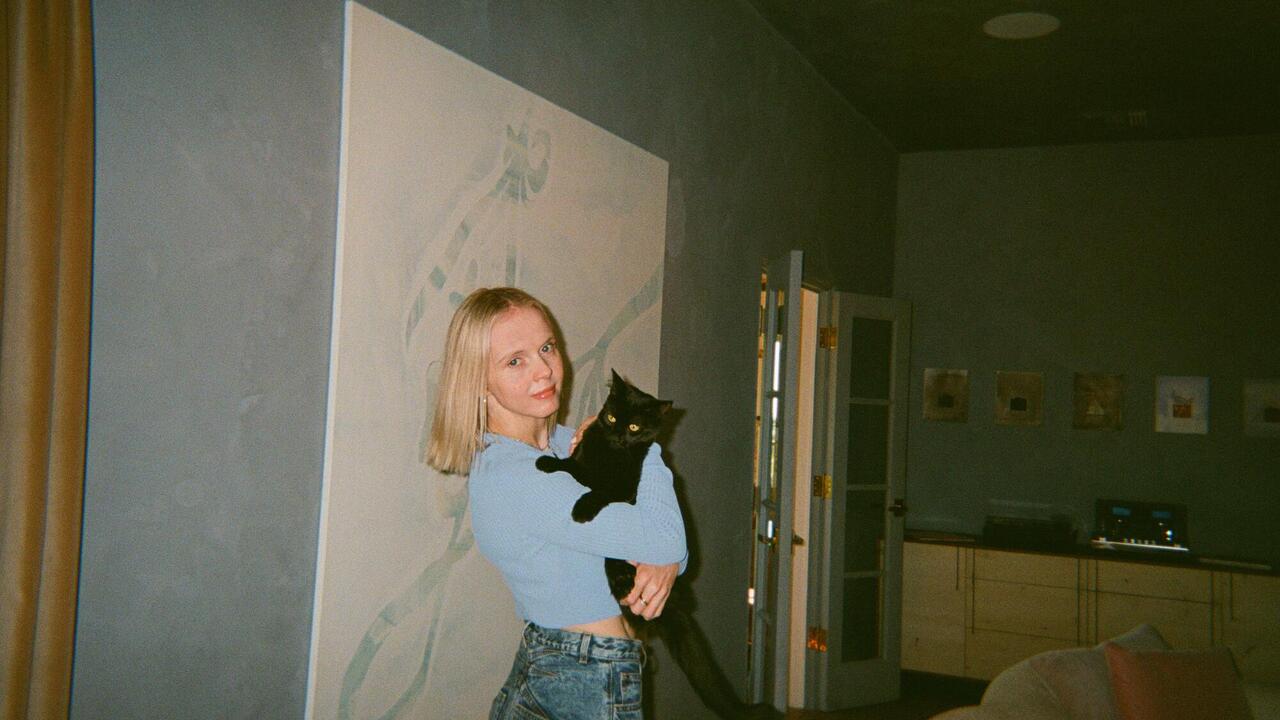Wayne Koestenbaum Gets Tricky with His Pronouns
‘I spend more time being seduced by the void … as a way of energizing my language’: poet Wayne Koestenbaum speaks about his new book
‘I spend more time being seduced by the void … as a way of energizing my language’: poet Wayne Koestenbaum speaks about his new book

‘[I despise always trying to be an intellectual]’ – the title of the first sequence of poem-fragments in Wayne Koestenbaum’s new collection of poems, Camp Marmalade (Nightboat Books, 2018) – tellingly opens this second volume of a trilogy of ‘trance notebooks’ by a poet whose numerous works of poetry and prose overflow with heartfelt intellect that’s as rigorous as it is deceptively effortless.
With The Pink Trance Notebooks (the trilogy’s first volume published in 2015), Koestenbaum introduced a new form and process to his work: after transcribing his train of thought through trancelike states of mind, he extracts the juiciest phrases, enjambs them in clipped lines and labels the passages in numbered sections with bracketed, italicized lines like ‘[imaginary baby lunching on his own oblivion]’ and ‘[To refuse the sick home’s lure]’ serving as titles. Erudite while iconoclastic, impious and so utopian, Marmalade’s a dreamy sleepaway camp where amorous outsiders can find camaraderie in their mutual alienation.
Zachary Pace Camp Marmalade feels like the adolescent in the Trance trilogy, the second, central phase of the three books.
Wayne Koestenbaum Thank you for that arresting interpretation. Camp Marmalade is a carceral, instructional space: it’s both an endurance test and a joyride. Maybe you go to Camp Marmalade to be punished out of earlier, more playful drives. Or maybe Camp Marmalade is the place in adolescence where your libidinal energies grow unhoused and randy, where you can exercise the jammier frequencies.
ZP What was your notebook-keeping like as an adolescent?
WK I had a journal, but it was a guilt-space. I didn’t pour thoughts freely onto the page.

ZP Were you detailing memories, or an event that just occurred? Or were you free-associating?
WK Sometimes I would describe an event that had just occurred, but mostly I used my notebook as a place of retreat and self-construction. I would tunnel into the notebook as an island, an oasis, a bower, a cell. To this day, my notebooks – including the ones from which Camp Marmalade derive – resemble a hermit’s stance. By crawling into the notebook mode, I seem to turn my back on the social.
ZP Self-construction is crucial to the voice in Camp Marmalade, which seems especially comfortable with a kind of psychoanalytic mode of inquiry; associative and reflective, questioning and working-through. What was your experience of psychoanalysis as a teen?
WK The only thing I knew about therapy was that it represented the possibility of correcting homosexuality. In the 1970s, I didn’t understand that correction therapy was illegitimate. I nursed the hope or expectation that eventually I would see a psychiatrist and have my homosexuality cured. I harboured desires quaintly designated as ‘homosexual’. I’m aware of how strange and passé that word is; therefore, I relish it, if only because it jolts me into awareness of how historically contingent my desires are. Of course, I secretly enjoyed homo-lust’s tumultuous, impermissible clatter. It fuelled my looking and fantasizing, my organizing of the world, but I assumed that eventually I would need to reform and eliminate those yearnings.
I wonder when I began to describe homosexual urges in my journal. Probably not in high school. I can’t imagine I’d have been reckless and audacious enough to mention it. Most likely I first ventured words about homoeroticism as a freshman in college. I didn’t have a homosexual experience until the end of freshman year. I began to write about gayness by casting it as a problem, or that issue, a space of paradisiacal darkness, as if in a D. H. Lawrence story. I always cloaked my desire under a fantasy of the double. In college, I wrote obsessively about my longing for the lookalike, the twin, the ghost-brother.
ZP What’s your relationship to psychoanalysis now?
WK I’m utterly psychoanalytic in my orientation. The study of human lives, and the stories that construct human lives, are infinitely interesting, infinitely decodable. Enigmatic. Literary construction and embroidery are not separate from personal interrogation. And there’s no end to this investigation. The process is rewarding for its own sake.
Psychoanalysis has been understood to be a homophobic discourse. Anti-homophobic critique has sometimes needed to marshal its interrogative forces against psychoanalysis, but many writers, including me, have sought to reclaim the space of psychoanalysis as a place of libidinal, homoerotic, verbal inquiry – a space for the germination of queer-affirmative poetic projects.
ZP The first passage to set the tone for my reading of Camp Marmalade is at the end of the first notebook:
disastrous plunge into
abyss, but what
is abyss and why do I
call it mother?
This spoke to a feeling I’ve thought about a lot lately, I’m calling it void-sickness.
WK Void-sickness! It’s both a sickness caused by the abyss, and a homesickness for the abyss – you want the void. You use literature to run away from the void, but you also use it to approach the void. In Camp Marmalade, I spend more time being seduced by the void, opening myself to the void’s seduction, as a way of energizing my language and making ‘me’ – that dubious construction – happen.
ZP Which reminds me of Joan Didion’s conclusion in her essay ‘On Keeping a Notebook’ (1968). She ultimately decides: ‘To remember what it was to be me. That is always the point.’
WK The ‘me’ emerges happily, albeit fitfully, spasmodically. I prefer the me to the I. You point to me, because ‘me’ is the objective case. ‘Me’ conjures a state of being called, or importuned, or beheld. You address yourself as me. In Camp Marmalade, I’ve tried to be tricky with pronouns, and to use ‘I’ less frequently. I’m going to open the book now. Here –
men were attracted to me
because of my big hips
she said
– page 140. Me, she. I like to think of the pronouns in this book as poker chips that you move equilaterally and foxily around a table.
ZP That happened to me as you read the passage: I was ‘me’ at the end of the first line – and you were ‘me’ – then you and I became ‘she’ in the third line, and she herself was with us.
WK That’s one advantage of a book with unconventional punctuation. In my pre–Pink Trance poems, strict punctuation interfered with gender fluidity and other kinds of interpersonal playfulness. I’d straightened-up my writing unduly with my rage to punctuate. Now I’m thinking of this passage:
not to be screwed by
him but to be encircled
by his wish to screw
and by every sign that
in and on his body connotes
worthiness to screw—
to be swaddled
by screw-worthiness
There’s no I or me at all. Instead, sexual desire is a penumbra formed by his worthiness to screw. Phallic masculinity, as I’m desiring it in that passage, is defined as worthiness to screw. Screw-worthiness. And I want to be swaddled by it. It’s not the same as, ‘I have this desire for someone else.’ Instead, I desire the state of being worthy to screw. Who determines worthiness? I can double-down on that worthiness by moving my desire’s poker chips onto a screw-worthy number.
ZP The effect is self-nullifying.
WK A true bottom would say: ‘I want him to screw me.’ Instead, I’m saying I want to be encircled by his state of eligibility. Sexuality demands a psychoanalytically-tinged investigation – of the Camp Marmalade variety – because desire isn’t simple; you don’t say I want him to screw me, it’s more accurate to say I want to be swaddled by screw-worthiness. I’m an advocate of complicated language. We need intricate and sometimes convoluted language because desire is abstract and circuitous. Call it horniness, or simply scopophilia, the way I train my writing gaze onto specific details of men’s physical appearance …
The degree to which my young consciousness was harnessed to the wish to see! The wish to see material I could not see. (Myra Breckinridge, for example.) My literary and artistic life begins there, in that act of yearning for culturally forbidden visual material. The male centrefold at the end of the mind.

ZP Do you have a sense of the third volume in the Trance trilogy?
WK All the raw material exists. What I’m trying to distil and transform into the third volume are my notebooks from 2015, 2016, and 2017. Camp Marmalade comes from the notebooks of 2014. I had planned only 2015 to be the third volume, but I kept on writing more and more trance notebooks, and so my transcript of 2015 to 2017 is unruly and long – hundreds of pages. I’m trying now to shape it, to figure out which bits of language speak to me, which words and phrases still seem alive to me – from the not yet animate morass of words I’ve committed to paper.
I’ve joined Twitter; I reserve the right to incorporate tweets in the third volume. Sometimes I feel the urge to write a stanza, so I write a tweet that is a stanza. The temporary resting-place of these stanzas is the Twitter-sphere, which is a vast and lonely and private place, despite its illusion of being a public forum.
ZP The format may lead you to a futuristic voice that’ll inform the adulthood of the trilogy.
WK Maybe you can help me! What could be adult about the third volume’s voice?
ZP I think your inclusion of notebooks from 2016 and 2017 will be the key. The difference between 2015 and 2016 is a bit like the difference between adolescence and adulthood. The most distinct feature of my adulthood so far has been the annihilation of my adolescent ideals.
WK I don’t think I had any adolescent ideals. Except for music. That was my only paradise. The notion of musical transcendence was my adolescent ideal. It was my religion. Godless and humming. A vibrational palace.
Wayne Koestenbaum has published 19 books of poetry, criticism, and fiction. His book Camp Marmalade was published this spring by Nightboat Books. He has exhibited his paintings in solo shows at White Columns, New York, 356 Mission Road, LA, and the University of Kentucky Art Museum. His first piano/vocal record, Lounge Act, was released in 2017.
Main image: Wayne Koestenbaum, 2018. Courtesy: Nightboat Books; photograph: Ebru Yildiz










